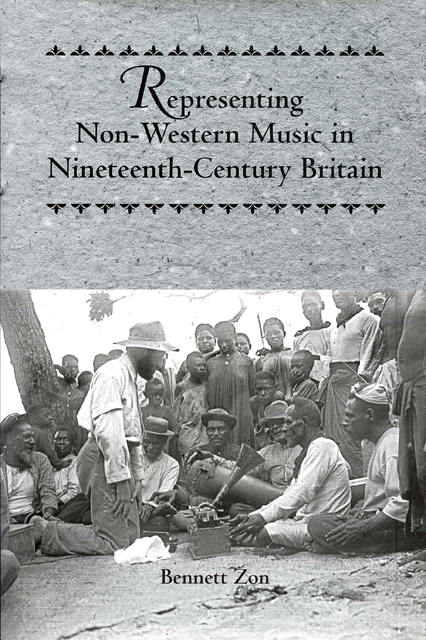Book contents
- Frontmatter
- Dedication
- Contents
- List of Illustrations
- Preface
- Acknowledgments
- Introduction Humanizing the Musical Savage: Orientalism and Racism in the History of British Ethnomusicology
- Part One Early Anthropological Influences
- Part Two Musicology in Transition to Evolution
- Part Three Individualism and the Influence of Evolution: Charles Samuel Myers and the Role of Psychology
- Part Four Retaining Cultural Identity: A. H. Fox Strangways and the Problems of Transcription
- Epilogue The “Ethnomusicology” in Long Nineteenth-Century Representations of Non-Western Music
- Works Cited
- Index
- Eastman Studies in Music
Preface
Published online by Cambridge University Press: 10 March 2023
- Frontmatter
- Dedication
- Contents
- List of Illustrations
- Preface
- Acknowledgments
- Introduction Humanizing the Musical Savage: Orientalism and Racism in the History of British Ethnomusicology
- Part One Early Anthropological Influences
- Part Two Musicology in Transition to Evolution
- Part Three Individualism and the Influence of Evolution: Charles Samuel Myers and the Role of Psychology
- Part Four Retaining Cultural Identity: A. H. Fox Strangways and the Problems of Transcription
- Epilogue The “Ethnomusicology” in Long Nineteenth-Century Representations of Non-Western Music
- Works Cited
- Index
- Eastman Studies in Music
Summary
This book first came to mind from a session with ethnomusicologists Gerry Farrell and Martin Clayton at the eleventh International Conference on Nineteenth-Century Music, held at Royal Holloway University of London in July 2000, titled “Ethnomusicology in the Nineteenth Century.” Papers included “Charles Samuel Myers: A Forgotten Pioneer of Ethnomusicology” (Clayton), “Colonialism and Music Education in Nineteenth-Century India: The Case of S. W. Fallon” (Farrell), and my own “Savage Time/Civilized Time: Progress in Early British Ethnomusicology.” Also in the audience was the ethnomusicologist Henry Stobart, who was an active participant in post-paper discussions.
Apart from the sheer delight of hearing reproductions of Myers’s 1898 recordings from the Torres Strait (the earliest British recordings of non-Western music), and Farrell’s humane interpretation of Fallon’s career as a schools inspector in India, what struck me most about that session was the fact that there was such disagreement about the use of the term “ethnomusicology.” Despite being titled “Ethnomusicology in the Nineteenth Century,” the session ended on a critical note of concern to preserve the integrity of the term in its modern usage. That usage was, of course, highly debated by the likes of Clayton, Farrell, myself, and Stobart, and in a sense gave rise to this current project. It was in my attempt to situate the figures discussed in that session within ethnomusicology that this book was born.
In doing so, I was drawn ineluctably toward the intellectual and musical literature that had so clearly influenced them, and from there backward in time to the even earlier periods of the later part of the eighteenth century, when the study of non-Western music was in its infancy both in the UK and elsewhere. From that chronological starting point, my research began to take shape, and evolved into the full-scale examination represented here. Since the conference, Martin Clayton and I have continued to discuss nineteenth-century British ethnomusicology, and have more recently collaborated on a set of commissioned essays entitled Music and Orientalism in the British Empire, 1780–1940 (2007). That volume, like this one, explores ethnomusicology within the history of intellectual and musical culture, and attempts, if only implicitly, to broaden our definition of ethnomusicology.
- Type
- Chapter
- Information
- Representing Non-Western Music in Nineteenth-Century Britain , pp. xi - xviPublisher: Boydell & BrewerFirst published in: 2023

